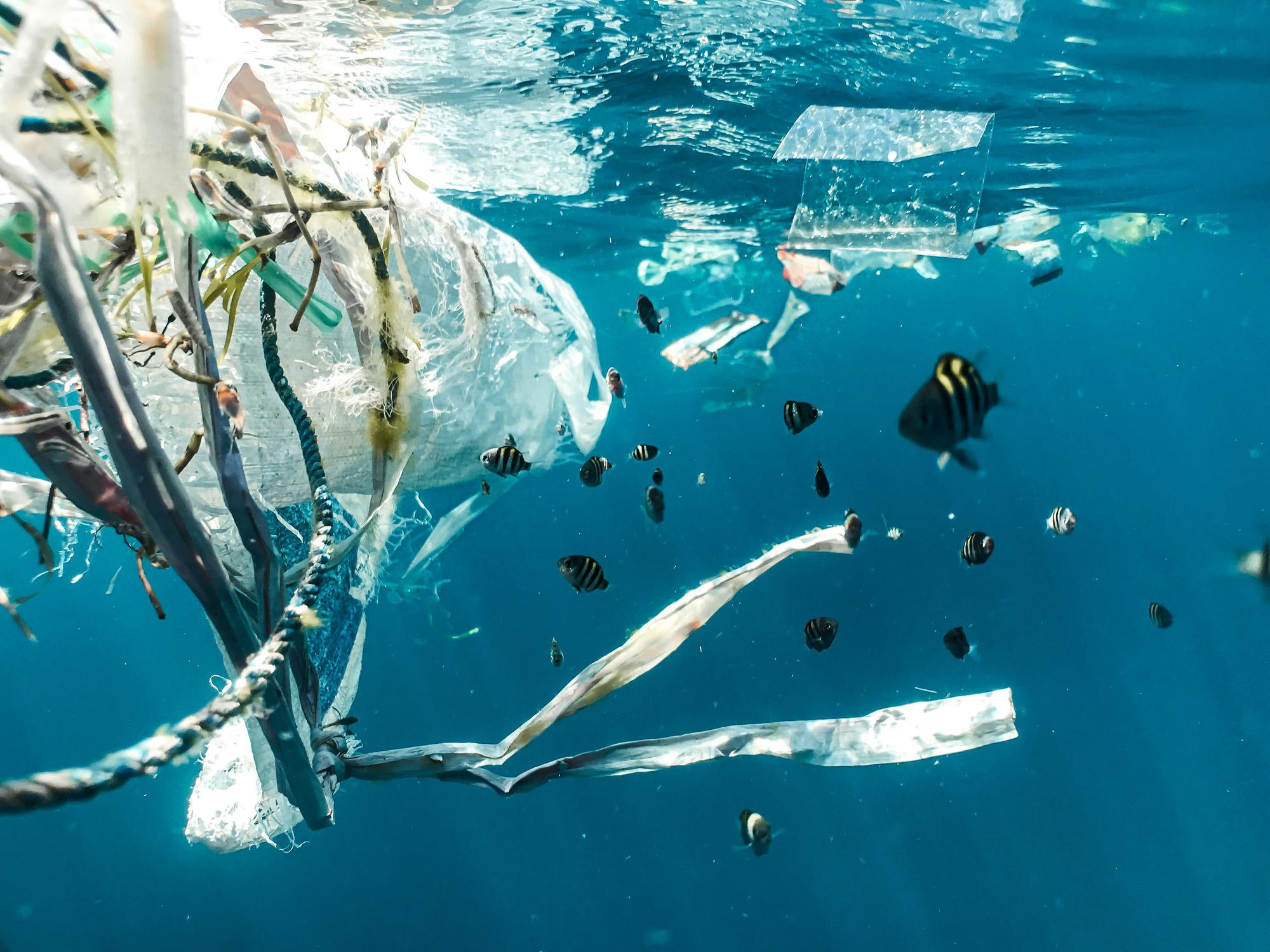Emptying the ocean with a teaspoon
The SUP Directive (Single-Use Plastic Directive) from the European Union has significant effects that we all feel in our daily lives. This directive was created to combat plastic pollution in our oceans. It’s the reason we drink from paper straws, pay for plastic bags in supermarkets, and no longer see loose bottle caps on plastic bottles. These changes are quite disruptive in daily life, but they’re supposed to save the oceans, right?
How did policymakers decide which plastic items should be banned under the SUP Directive? For that, beach litter surveys were used. These surveys are relatively simple: they determine which items are most harmful to the ocean based on the waste that washes ashore. If an item frequently appears on the beach, it must logically be common in the sea. This sounds reasonable enough, but is it effective?
The SUP Directive is largely based on these beach litter surveys. It’s no surprise then that plastic caps, straws, and bags are targeted by the directive, as they are all in the top 10 items found on European beaches. These items are certainly part of the problem, though perhaps less so than you might think. Straws, for instance, make up only 0.025% of all plastic waste in the water. When combined, these small disposable items are indeed substantial, but there’s a bigger issue: fishing waste. Or, more specifically, the waste generated by the fishing industry. Fishermen frequently lose nets, traps, lines, and other materials (all plastic) in the oceans. Fishing-related waste accounts for about 46% to 50% of plastic waste in the sea. However, this waste doesn’t wash ashore as often as smaller items. Due to its size and shape, it drifts aimlessly in the water. The Great Pacific Garbage Patch (GPGP), also known as the plastic soup, is largely caused by this waste.
The largest source of ocean pollution—fishing-related plastic—is therefore undetectable in beach litter surveys. This is problematic because, as mentioned earlier, the SUP Directive is largely based on these surveys. So, does the SUP Directive tackle fishing waste at all? Well, it does, but not very effectively yet. Efforts are being made to encourage fishermen to be more mindful of where they leave their nets, partly through sanctions. The directive also recommends creating collection points for old fishing gear at harbors. And the most important measure is set out in Article 8 of the SUP Directive, namely the EPR (Extended Producer Responsibility) scheme, which requires manufacturers of plastic nets to contribute financially to their collection.
However, fishing gear is often lost in international waters, where there is limited regulation, no jurisdiction, and little accountability. Since addressing fishing waste requires a complex, international legal approach, enforcement is currently weak. There are still no bans or strict regulations for fishermen, and coordination with ports and harbors is poorly organized.
This is why the directive currently focuses on disposable plastic items (straws, caps, and bags), where enforcement is easier. However, to me, these measures feel like emptying the ocean with a teaspoon as long as marine waste from fishing is barely addressed. I don’t mind drinking from paper straws for the rest of my life for the sake of turtles, but the fishing industry must also be regulated. Ghost nets (lost fishing nets) are the deadliest form of plastic waste. Every year, 300.000 marine mammals get caught in discarded nets and suffer slow deaths from suffocation or exhaustion. The problem goes beyond just turtles; it affects porpoises, dolphins, whales, and more.
The SUP Directive is a step in the right direction, but progress is slow. We need a solution in the meantime. My advice to the European Union is to mandate the use of biodegradable nets in the fishing industry. These nets do exist, although they’re somewhat more expensive than traditional nets. Traditional fishing nets take seven hundred years to degrade, whereas biodegradable nets disappear after just seven years. To comply with competition law and avoid further damage to our oceans, all fishermen should be required to use them, with subsidies available from the governments of the various Member States. While this may be easier said than done, prevention is better than cure.
People generally learn slowly. For years, we’ve known the negative impact of our actions on the environment, yet it’s only recently that we’ve started to make changes. But even now, our efforts are often ineffective or too slow. Until we find alternative and effective solutions, let’s ensure we don’t further harm our surroundings.

Photo by Naja Bertolt Jensen on Unsplash
Reacties
Log in om de reacties te lezen en te plaatsen